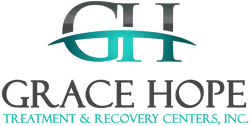Residential Treatment

Residential Addiction Treatment
When going up against the nemesis of addiction it truly takes the mindset of a warrior. A residential treatment program allows you to go all in, to face down the enemy and take back your life. A residential program provides the intensity and support required to make fundamental changes in the way you think about, react to, and process daily events and triggers you will encounter. Making these shifts in thought and behavior patterns takes time and practice, and a residential program provides the safe, supportive environment to make those important changes happen.
How is Residential Treatment Different From Outpatient Treatment?
A residential treatment program involves an extended stay at our inpatient rehabilitation center, lasting from 30 days to several months in duration. The length of the stay will depend upon the severity of the addiction, on whether there is a dual diagnosis (co-occurring mental health disorder), and on the person’s recovery goals.
While at first someone may feel anxious about entering a residential program, these fears soon dissipate once the individual becomes acquainted with the team at Grace Hope Treatment & Recovery Centers, meets the other residents, and gets comfortable with the daily routine. The residential program allows the individual to remove themselves from the triggers and stressors that keep them in the vicious cycle of addiction, offering a safe, comfortable place to learn about themselves, about addiction, and about how to achieve a successful, sustained recovery.
Residential rehab features a tightly structured daily schedule filled with therapeutic activities that keeps residents engaged and moving forward toward achieving the shared goal of sobriety. Balance is achieved with added recreational activities and free time, as well as several adjunctive holistic therapies that compliment the traditional treatment elements.
The primary goal of residential rehab is to remake oneself into a better, stronger, more proactive person who will be equipped with the recovery tools and skills to carve out a new, healthy sober lifestyle.
What Does Residential Treatment Entail?
The addiction recovery process involves multiple steps that progress along a continuum. Residential rehab includes the following steps:
Intake and assessment. A careful and thorough evaluation allows the intake clinicians to accurately diagnose the disease and identify any unique features involved. From the information provided during the intake interview and evaluation, an individualized treatment plan is created as a kind of recovery blueprint, customized to address the specific needs and recovery goals of the individual.
Detox and withdrawal. Most individuals will require a ly supervised detox program at the outset. This allows the residual drug and/or alcohol to be purged from the system, resulting in a more stable, clear-headed condition allowing the client to fully engage in the treatment process. Residential detox will involve trained detox professionals who will administer the and psychological support necessary to minimize the withdrawal symptoms.
Addiction treatment. The treatment process relies heavily on psychotherapy, the cornerstone of addiction recovery. Evidence-based therapies, such as cognitive behavioral therapy (CBT), dialectical behavior therapy (DBT), and others are offered in both individual and group formats. Therapy guides residents to examine underlying emotional factors, as well as identify disordered thought patterns that keep them turning toward substance abuse, and then make core changes in those patterns.
Adjunctive activities. To round out treatment there are holistic and adjunctive activities that augment the effects of the conventional therapy. These might include eye movement desensitization and reprocessing (EMDR), 12-step or non 12-step meetings, mindfulness training, massage therapy, recreation therapy, acupuncture, and equine therapy.
Medication management. Certain conditions may constitute the need for medication as a treatment intervention, such as managing symptoms of a co-occurring mental health disorder. In addition, some may benefit from medication-assisted treatment, such as naltrexone or Suboxone, which can help reduce cravings and reinforce early recovery.
For more information about our residential treatment program, please contact Grace Hope Treatment & Recovery Centers today at 1-866-618-0016.
